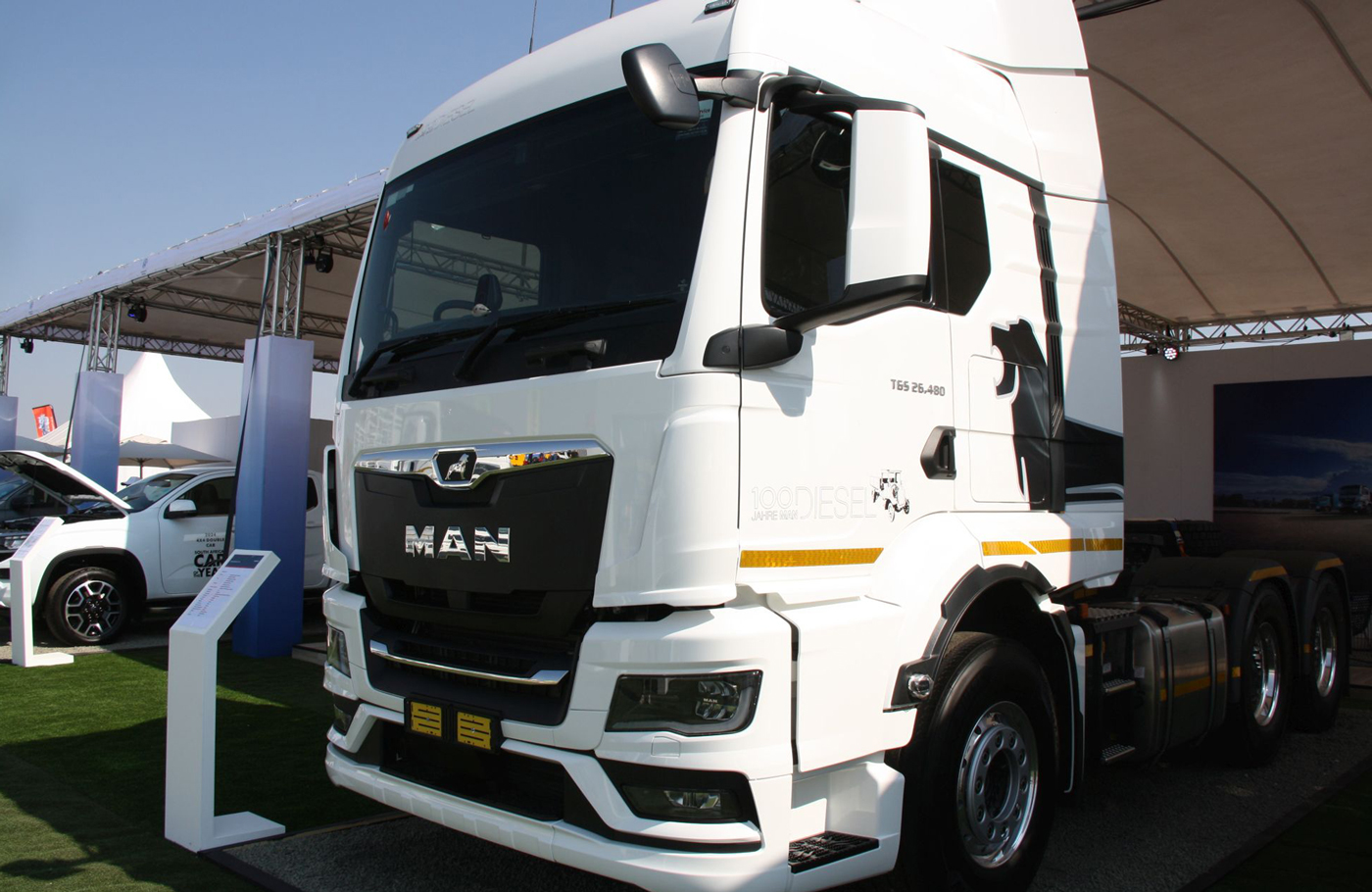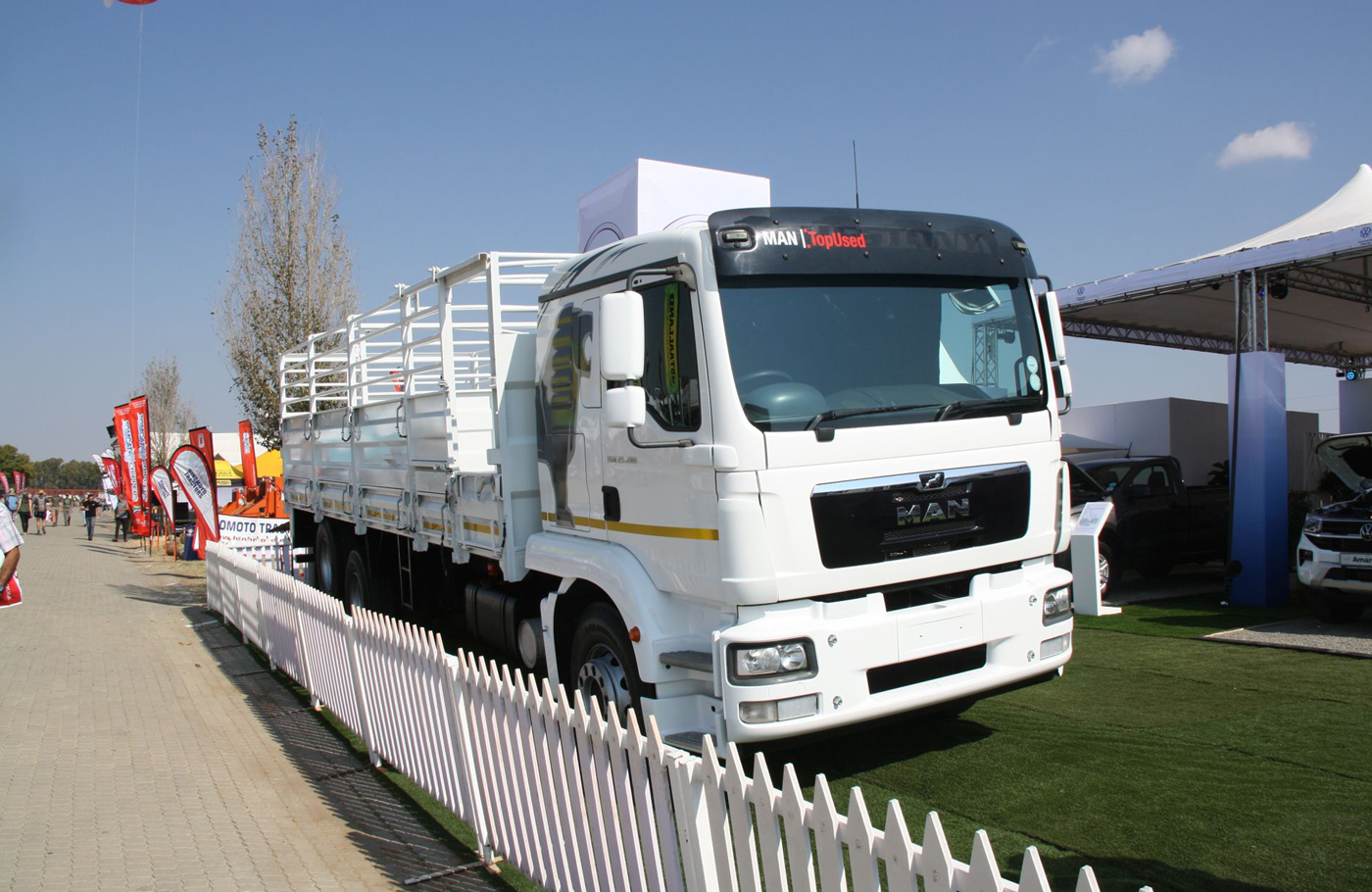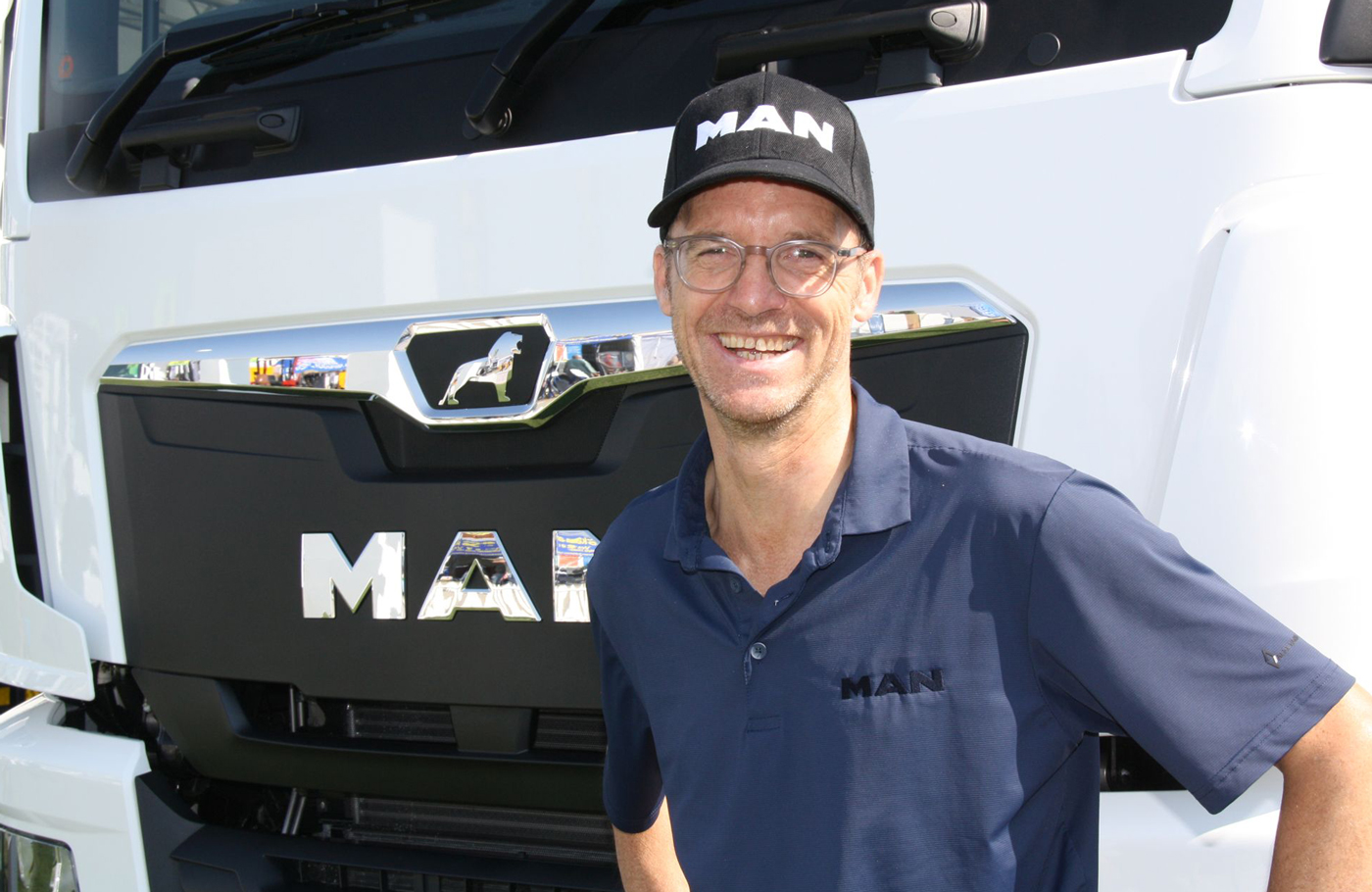MAN: differentiation via superior service
MAN: differentiation via superior service
MAN Automotive South Africa is proactively working to help stem the effects of rising purchase costs by optimising the specification of its heavy-duty TGS 26-440. COLIN WINDELL finds out more at Nampo…
While the full-spec version of the TGS 26-440 is still available to operators, the optimised premium option comes with steel rims in place of aluminium, manual side mirrors finished in black rather than colour-coded, no chrome enhancement on the front grille, and some minor changes inside the cab.
Another significant item not on the basic truck spec sheet is the lane guard system (LGS). According to Jan Aichinger, managing director of MAN Automotive South Africa, the request to remove it comes directly from the customers. “Drivers dislike the feature because of the potholed nature of our roads, so they are constantly fighting against the system or having to switch the LGS off every time they get into the truck. In a kind of Catch-22 way, the system that is supposed to be a safety measure actually works the opposite way by trying to persuade the truck back onto a line where it could encounter most of the potholes,” he says. “Obviously, this is also available if an operator wants it, but it helps us to be able to offer the truck on par with equivalent competitor vehicles in this segment.”
Aichinger adds that a big focus for MAN at the Nampo Harvest Day Show this year was to help current and new customers understand that the calculation of total cost of ownership (TCO) goes well beyond price. Instead, they need to consider financing costs, repair and maintenance expenses, insurance, and fuel consumption – not forgetting that the most important element is downtime.



“If we assume a customer makes a 5% return on sales and the year has 360 working days, the revenue on 5% of those days is going to equal the total income after everything else such as fuel, salaries, and other expenses are taken into account,” says Aichinger. “In other words, the operator’s total annual profit comes from just 18 days – and if the vehicle is not working for any of those, chances are the operator will just break even or, more likely, have a loss.” He goes on to specify that this is not including routine maintenance, as that is already built into the equation, emphasising: “We are talking here about unscheduled and unnecessary downtime.”
He adds that the company currently has 72 service apprentices at its head office facility. “We are differentiating ourselves from our competitors through our service offerings. Other companies do not offer the same high level of service,” he expands. “They will not have the same number of spare parts in their parts distribution centre; they will not have the same number of technicians. Just in our own seven workshops – we’re not considering our dealer network – we have the 72 in training. This is where we want to differentiate ourselves, with the focus on uptime and TCO.”
MAN also introduced an innovation on its stand. “This year, we joined forces with our sister brand from VW Commercial. They were not at Nampo for a couple of years, so I invited them to join us. It’s appealing because we are not competitors in the same market segments, and we are also offering complementary products in terms of things such as finance,” concludes Aichinger.
Published by
Focus on Transport
focusmagsa




